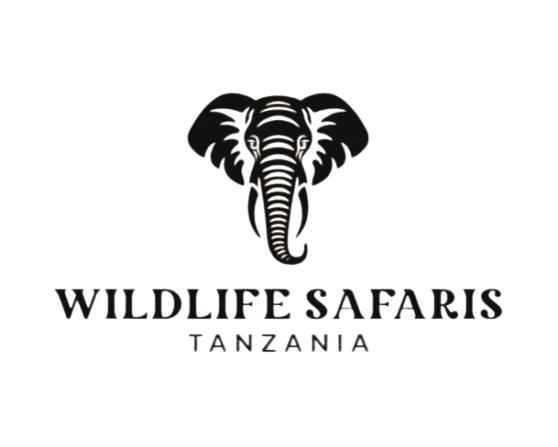Low Season Safaris
Low season safaris—also known as green season or off-peak safaris—offer a unique and rewarding way to explore Africa’s wilderness. While many travelers aim for the dry season, the low season brings its own magic: lush landscapes, dramatic skies, thriving birdlife, excellent photography light, fewer crowds, and attractive prices. For travelers seeking value, serenity, and a more intimate wildlife experience, low season safaris are one of Africa’s best-kept secrets.
What Is the Low Season?
The low season typically corresponds with the wetter months when rainfall is more likely, vegetation is greener, and tourism numbers are lower.
Depending on the region, this can fall between March–May and October–November in East Africa, and November–April in Southern Africa.
While rains may occur, they usually come in short bursts, followed by clear, beautiful skies.
Why Choose a Low Season Safari?
Fewer Crowds
One of the greatest benefits of low season travel is the peacefulness. With fewer vehicles at sightings and quieter lodges, you get more personal and immersive wildlife experiences. The wilderness feels private and serene—perfect for travelers who value tranquility.
Better Pricing
Low season brings discounted rates on:
-
safari lodges
-
tours
-
long-stay packages
This makes high-end experiences more accessible, allowing you to enjoy luxury lodges at significantly lower prices.
Lush Green Landscapes
After the rains, the landscapes burst into vibrant greens. Grasslands glow, trees flourish, and flowers bloom. This creates:
-
excellent photography opportunities
-
beautiful backdrops for wildlife
-
stunning panoramic views
Baby Animal Season
Low season is also calving season for many species such as zebras, antelopes, and wildebeest. Newborn animals attract predators, making predator sightings frequent and action-packed.
Exceptional Birdwatching
Migratory birds arrive in huge numbers, making this the best time for birdwatchers. Expect:
-
colorful breeding plumage
-
active courtship displays
-
diverse species from all over the world
Softer Light for Photography
Cloud cover creates ideal lighting—soft, even, and perfect for wildlife photography without harsh shadows.
Wildlife Viewing in Low Season
Although vegetation may be thicker, wildlife viewing remains excellent.
Predators are active, newborn animals abound, and many species gather around water sources that remain consistent.
In some destinations—like the Serengeti, Masai Mara, and Botswana’s Delta—animal movements remain predictable and easy to track.
Best Countries for Low Season Safaris
Tanzania
-
The Serengeti remains incredible year-round.
-
Calving season (Jan–March) brings thousands of newborn wildebeest.
-
Ngorongoro and Tarangire are beautiful and uncrowded.
Kenya
-
Masai Mara offers excellent predator action during and after rains.
-
Landscapes transform into lush green wonderlands.
-
Fewer vehicles mean more intimate game drives.
Uganda
-
Gorilla trekking is still excellent, with fewer visitors.
-
Forests become misty, green, and magical.
-
Chimpanzee trekking remains rewarding.
Rwanda
-
Volcanoes National Park remains open and accessible.
-
Quieter trails for gorilla and golden monkey trekking.
Botswana
-
The Okavango Delta transitions into a lush oasis.
-
Tremendous birdlife, dramatic skies, and peaceful reserves.
South Africa
-
Great value in Kruger and private reserves.
-
Green landscapes and superb photography.
Namibia
-
Dramatic desert rains create rare and beautiful scenes.
-
Wildlife sightings increase around ephemeral water sources.
Bush and Beach in Low Season
Low season safaris pair beautifully with tropical beaches:
-
Seychelles
-
Mauritius
-
Kenya’s Coast
With fewer crowds and great rates, these destinations feel extra romantic and peaceful.
Who Should Choose a Low Season Safari?
Low season safaris are ideal for:
-
photographers
-
bird lovers
-
honeymooners seeking privacy
-
budget-conscious travelers
-
returning safari lovers
-
travelers who appreciate green landscapes
-
those avoiding crowded parks
It is particularly perfect for travelers who want value without compromising on wildlife experiences.
Things to Consider
-
Occasional rain showers are normal.
-
Roads in some parks may be muddy or harder to navigate.
-
Vegetation can be thicker, but guides are skilled at tracking wildlife.
-
Some remote camps close during peak rains—always check availability.
Conclusion
Low season safaris offer an extraordinary blend of beauty, value, and peaceful wilderness. With vibrant landscapes, newborn wildlife, rich birdlife, fewer tourists, and lower prices, this season allows you to experience Africa in a gentler, greener, and more intimate way.
For travelers who want to see the continent’s wild heart without crowds—and enjoy huge savings in luxury lodges—low season safaris are the perfect choice.

